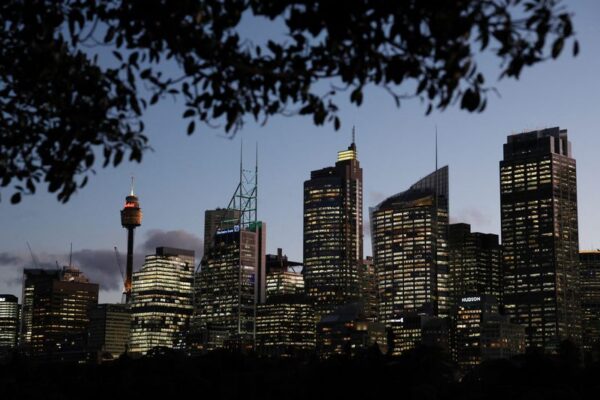EQT pays an electrifying price for U.S. bus ride
School bus drivers lead a caravan through downtown Los Angeles, California, U.S., August 13, 2020.
EQT (EQTAB.ST) is taking an unusually expensive bus ride. The Swedish buyout group’s infrastructure arm on Friday said it would pay $4.6 billion including debt to buy two North American businesses from transport operator FirstGroup (FGP.L). The deal, which includes the iconic U.S. yellow school bus network, requires an electric boost before EQT can make serious money.
The price looks punchy. EQT is paying 8.9 times 2020 EBITDA for the two units, First Student and First Transit. That’s 12% more than UBS analysts reckon they are worth. Listed rival National Express (NEX.L) is valued at 8 times 2020 EBITDA, according to Refinitiv data, while other bus groups like Go-Ahead (GOG.L) and Stagecoach (SGC.L) trade at even lower multiples.
That deal is therefore a win for FirstGroup Chief Executive Matthew Gregory. Activist shareholder Coast Capital has for years been calling for a breakup of the debt-laden company. After the deal, Gregory will have a large slug of cash to pay off borrowings and even return money to long-suffering shareholders. FirstGroup shares rose 11% on Friday morning.
EQT, by contrast, has a tough journey ahead. Its infrastructure team usually aims for a mid-teen internal rate of return, according to a person familiar with the matter, and often holds assets for around a decade. Assume its dealmakers fund the deal with debt equivalent to 4 times EBITDA, keep margins steady, use all free cash flow to pay themselves an annual dividend, and sell the business in a decade at 9 times EBITDA. To hit a 15% IRR on that basis, they would require annual revenue growth of almost 9%, according to Breakingviews calculations. That’s optimistic for a utility-like transport business.
Granted, First Student is a leader in the $25 billion North American yellow school bus market: its roughly one-fifth market share is about twice as large as its closest competitor. That business is relatively immune to a post-pandemic travel slump, since children will probably still go to school. It also benefits from predictable, long-term government contracts. Crucially, EQT could grab more market share and potentially reduce running costs by turning the fleet into electric vehicles.
But that will require heavy investments, eating into returns. It’s also unclear how much extra business it would win. EQT is taking on the risk of a major overhaul at an electrifying price.
Follow @karenkkwok on Twitter
CONTEXT NEWS
– FirstGroup on April 23 said it would sell two North American bus businesses to EQT Infrastructure for $4.6 billion including debt.
– The UK-based transport operator began the sale process a year ago for First Student, a school bus unit, and First Transit, a bus contracting business. The decision to sell followed pressure from activist shareholder Coast Capital Management. The two units generated revenue of $3.8 billion in 2020, and accounted for 60% of group operating profit.
– FirstGroup plans to use the proceeds from the sale to pay down debt, contribute to its UK pension schemes and return money to shareholders.
– The company is proposing to return about 365 million pounds ($506 million) to shareholders in 2021, but didn’t specify whether that would be in the form of share buybacks or dividends.
– FirstGroup shares were up 11% to 94.15 pence at 0746 GMT on April 23.
Reuters Breakingviews is the world’s leading source of agenda-setting financial insight. As the Reuters brand for financial commentary, we dissect the big business and economic stories as they break around the world every day. A global team of about 30 correspondents in New York, London, Hong Kong and other major cities provides expert analysis in real time.
Sign up for a free trial of our full service at https://www.breakingviews.com/trial and follow us on Twitter @Breakingviews and at www.breakingviews.com. All opinions expressed are those of the authors.












 Bitcoin
Bitcoin  Ethereum
Ethereum  Tether
Tether  XRP
XRP  USDC
USDC  Solana
Solana  TRON
TRON  Figure Heloc
Figure Heloc  Lido Staked Ether
Lido Staked Ether